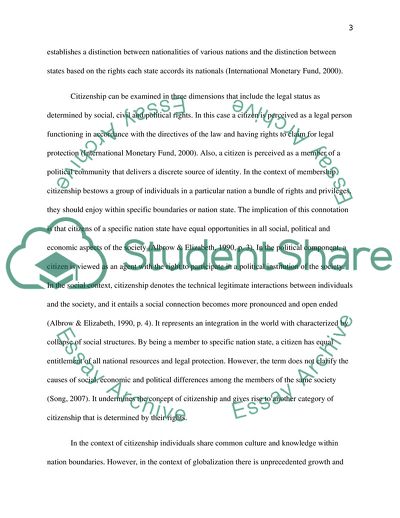Cite this document
(Concept of Citizenship in Globalized Economy in the UK Report Example | Topics and Well Written Essays - 3250 words, n.d.)
Concept of Citizenship in Globalized Economy in the UK Report Example | Topics and Well Written Essays - 3250 words. https://studentshare.org/sociology/1854155-critically-discuss-whether-the-concept-of-citizenship-loses-or-gains-importance-in-the-context-of-globalisation
Concept of Citizenship in Globalized Economy in the UK Report Example | Topics and Well Written Essays - 3250 words. https://studentshare.org/sociology/1854155-critically-discuss-whether-the-concept-of-citizenship-loses-or-gains-importance-in-the-context-of-globalisation
(Concept of Citizenship in Globalized Economy in the UK Report Example | Topics and Well Written Essays - 3250 Words)
Concept of Citizenship in Globalized Economy in the UK Report Example | Topics and Well Written Essays - 3250 Words. https://studentshare.org/sociology/1854155-critically-discuss-whether-the-concept-of-citizenship-loses-or-gains-importance-in-the-context-of-globalisation.
Concept of Citizenship in Globalized Economy in the UK Report Example | Topics and Well Written Essays - 3250 Words. https://studentshare.org/sociology/1854155-critically-discuss-whether-the-concept-of-citizenship-loses-or-gains-importance-in-the-context-of-globalisation.
“Concept of Citizenship in Globalized Economy in the UK Report Example | Topics and Well Written Essays - 3250 Words”. https://studentshare.org/sociology/1854155-critically-discuss-whether-the-concept-of-citizenship-loses-or-gains-importance-in-the-context-of-globalisation.


